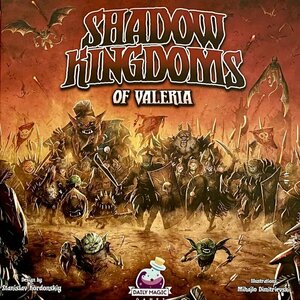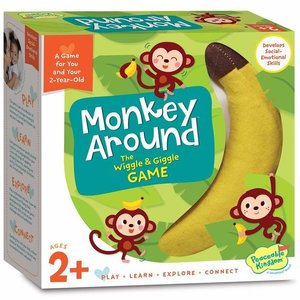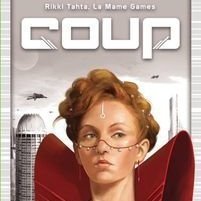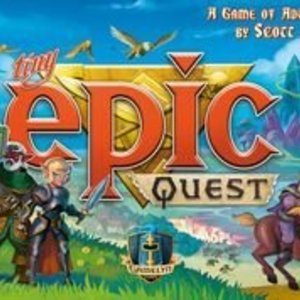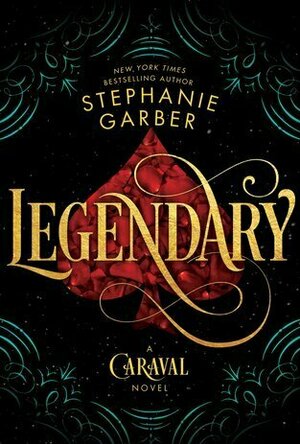Purple Phoenix Games (2266 KP) rated Shadow Kingdoms of Valeria in Tabletop Games
Jan 5, 2022
Shadow Kingdoms of Valeria is a game of worker placement and dice drafting/pool building in which players are trying to amass the most VP by the end of the game. Played over a series of rounds, players will take turns moving their Warden, drafting dice, and performing various actions. To setup, place the main board in the center of the play area. Shuffle and place the Battle Plan deck, Award cards, and Champion decks in their corresponding locations. Fill the dice bag with the requisite number of dice for your player count, and draw/roll/place the listed number of dice in each of the 5 Shrines (areas) of the main game board. A specified number of Gems are placed in the appropriate Shrine, and each player places their score marker on the 0 space of the score track. Each player receives a player board, random Campaign Map, Warden and Conquest Markers in their chosen color, as well as markers for Gold, Influence, and Magic. Choose a starting player, and the game is ready to begin! The setup for a 2-player game is pictured below.
On your turn, you will move your Warden from its current location to one of the other 5 locations on the board. Whichever location you choose dictates what actions you may take this turn, and are as follows: Gem Shrine, Magic Shrine, Champions Shrine, Gold Shrine, Tactics Shrine, or your own Camp. When placing your Warden at any location (with the exception of your own Camp), you will first select one of the dice found at that Shrine and place it on an open space of your player board. You may not move to a Shrine if it has no dice! After taking a die, you may perform the action associated with your chosen location. The Gem Shrine allows you to take 1 Gem, which can be used to manipulate dice in future turns. At the Magic Shrine, you may gain 2 Magic or claim 1 Award card. Magic can be spent in the game to manipulate dice or partially refresh the Champion/Battle Plan decks, and Award cards give you VP and can be claimed once you have met their requisite conditions. The Champions Shrine grants you the opportunity to buy a Champion card. Champions can provide either Immediate, Ongoing, or End-Game effects. The Gold Shrine allows you to gain Gold (used to purchase Champions and Battle Plans), and the Tactics Shrine allows you to buy a Battle Plan to be placed in your reserve on your player board.
The final location, your own Camp, is on your player board. When you place your Warden here, you are committing to perform a Battle. To do so, select which Battle Plan you wish to complete (either from your reserve, or pay Gold to buy directly from the Battle Plan line), and place it on your player board. All Battle Plans have certain dice requirements that need to be met in order to be completed. Select and manipulate which dice you want to use for your chosen Battle Plan, and add up your total Strength. Compare your Strength to your Influence marker – the lower of the two will be your total strength for this battle. Check the chart on your player board to find the number of VP you earn for the total Strength level achieved in the Battle, and immediately move your score marker the appropriate number of spaces. After performing a Battle, you get to level up your player board. During the game setup, each player receives 10 Conquest Markers that are housed on their player board, blocking/locking certain bonuses, abilities, and dice slots. After a Battle, you may remove 1 Conquest Marker from your player board (granting you a new bonus/ability for future turns), and place it on your Campaign Map. Campaign Maps have nine different slots that will grant you differing rewards. Once you have moved your Conquest Marker, return all dice used in this Battle to the dice bag, and move your completed Battle Plan card to the side of your player board. Your turn then ends and the game moves to the next player.
The game continues in this fashion, with players moving their Wardens, collecting dice, and performing actions, until one player has completed their 7th Battle Plan. The round continues until all players have had an equal number of turns, and then players add up any remaining VP. The player who has accumulated the most VP is then declared the winner!
It really should come as no surprise to you that I love this game. Beyond just the Valeria-verse theme, though, the gameplay is more strategic than I originally thought. Yes, it’s a worker placement and dice drafting game, but the underlying strategy is really what makes it great. You see, the dice in the game have 3 different elements that affect your strategy. First is the color: each color matches a Faction, and different Factions are required to complete specific Battle Plans. Next, is the actual die value: you want higher numbers to get a higher Strength, which equates to more VP when completing Battle Plans. And lastly is the discount: depending on the face value of the die, you will receive a discount towards purchasing Champions, Battle Plans, or collecting gold. The lower the face value of the die, the higher the discount, and vice versa. So yeah, maybe taking a 1 value die won’t really help in the Battle Plan, but the amount of gold it allows you to collect might be worth it. You have those 3 things to consider for dice alone! And that doesn’t even take into account which Champions you might want to buy, or what Battle Plans would be beneficial to you.
Another neat strategic element are the Conquest Markers on your player board. Everyone starts with the same number/placement of Conquest Markers, but as the game progresses, players may resolve them in various ways. There is no ‘correct’ order in which to move Conquest Markers – it all comes down to your strategy. Maybe you want more dice right off the bat, so you remove those first. Or maybe you want to be able to reserve more than 1 Battle Plan at a time, so you go for that one. It’s going to be different for every player, and it’ll be different every game. It all depends on the layout of the main board, and which dice and actions are available to you at any given time. There are so many strategic considerations throughout the entire game, and it keeps all players actively engaged.
Components. No surprise here, but the component quality is great, which is to be expected of Daily Magic Games. The cardboard is all thick and chunky, the wooden tokens nice and sturdy, and the cards are easy to manipulate and clear to read. The artwork is, in my opinion, one of the greatest things about the Valeria games, and Shadow Kingdoms is no exception. When getting the game set up, sometimes I find myself just looking through the cards and really appreciating the artwork. So all in all, great production quality here.
Does Shadow Kingdoms of Valeria climb the ranks to my favorite Valeria game? Not quite, but I have to say honestly that it’s getting there. The gameplay is solid and straightforward, the strategic implications are vast, and the components make the game feel awesome. And to get the Monster perspective in this universe is a neat twist that I otherwise would not really have thought of. If you’re a fan of the Valeria games, definitely check this one out. Or if you’re just a fan of worker placement, with some unique elements of drafting, then I highly recommend this one as well. Purple Phoenix Games gives it a mighty 5 / 6. Check it out. I don’t think you’ll be disappointed.
Purple Phoenix Games (2266 KP) rated Monkey Around in Tabletop Games
Jun 18, 2019 (Updated Dec 12, 2019)
Monkey Around is basically Kids’ Quelf. Never played Quelf? Meh, it’s okay if you are part of a silly group that will do anything asked of them. This game is similar in that you draw a circular card, and simply do what it asks you to do. As adults, some of the requests might be strange, but to a child, it’s all just silly fun. Many times you are asked to use the included stuffed banana in your tricks. Examples: lie on the floor with the banana on your belly button. Or: walk around the room while balancing the banana on your head. It’s silly.
I play this with my 3 year old boy and we have a great time with it. He is learning balance, improvisation, following instructions, motor skills, and interaction with others. It may make you feel silly but that’s what kids love, man. Just play this with your kids and have a really great time with zero pressure. Drop the banana? Oh well, try again with a different card. They will be cracking up and you will be strengthening that bond with your kids and fostering the love of board games early.
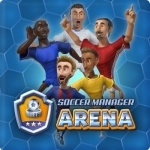
Soccer Manager Arena
Games and Sports
App
Collect player cards. Go head-to-head in the Arena in real-time football games! BUILD YOUR DECK ...
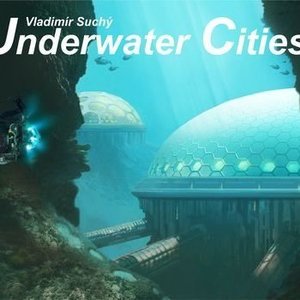
Underwater Cities
Tabletop Game
In Underwater Cities, which takes about 30-45 minutes per players, players represent the most...
BoardGames WorkerPlacementGames 2018Games
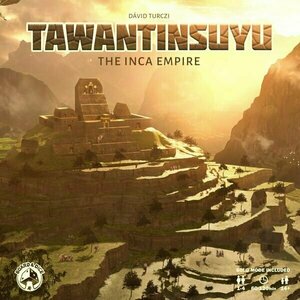
Tawantinsuyu: The Inca Empire
Tabletop Game
The great Sapa Inca Pachacuti turned to his offspring and ordered them to worship Inti, the Sun God,...
Matthew Krueger (10051 KP) rated Coup in Tabletop Games
Jul 17, 2020 (Updated Jul 18, 2020)
I learn about this game through the Funhaus Channel. And personality wanted to buy it after watching it. It looked easy, fun and entertaining. So when i saw it at Pax i knew i had to by it. If you dont know what Coup is or never heard of it. Let me explain.
Coup came out in 2012 was published by Indie Boards & Cards for 2-6 players.
In Coup you are head of a family in an Italian city-state, a city run by a weak and corrupt court. You need to manipulate, bluff and bribe your way to power. Your object is to destroy the influence of all the other families, forcing them into exile. Only one family will survive...
Gameplay:
In Coup, you want to be the last player with influence in the game, with influence being represented by face-down character cards in your playing area.
Each player starts the game with two coins and two influence – i.e., two face-down character cards; the fifteen card deck consists of three copies of five different characters, each with a unique set of powers:
Duke: Take three coins from the treasury. Block someone from taking foreign aid.
Assassin: Pay three coins and try to assassinate another player's character.
Contessa: Block an assassination attempt against yourself.
Captain: Take two coins from another player, or block someone from stealing coins from you.
Ambassador: Draw two character cards from the Court (the deck), choose which (if any) to exchange with your face-down characters, then return two. Block someone from stealing coins from you.
On your turn, you can take any of the actions listed above, regardless of which characters you actually have in front of you, or you can take one of three other actions:
Income: Take one coin from the treasury.
Foreign aid: Take two coins from the treasury.
Coup: Pay seven coins and launch a coup against an opponent, forcing that player to lose an influence. (If you have ten coins or more, you must take this action.)
When you take one of the character actions – whether actively on your turn, or defensively in response to someone else's action – that character's action automatically succeeds unless an opponent challenges you. In this case, if you can't (or don't) reveal the appropriate character, you lose an influence, turning one of your characters face-up. Face-up characters cannot be used, and if both of your characters are face-up, you're out of the game.
If you do have the character in question and choose to reveal it, the opponent loses an influence, then you shuffle that character into the deck and draw a new one, perhaps getting the same character again and perhaps not.
The last player to still have influence – that is, a face-down character – wins the game!
Its a fun entertaining deduction party card game and a must play if you havent played it yet.
Purple Phoenix Games (2266 KP) rated Tiny Epic Quest in Tabletop Games
Jul 29, 2019 (Updated Jul 9, 2020)
A world at peace has been thrust into chaos once more as mysterious portals have opened across the lands, spewing forth treacherous Goblins! The citizens need heroes – and that is your specialty! Traverse the lands to fight Goblins, learn magic spells, and delve into ancient temples to find powerful artifacts to aid in your battle for good.
Disclaimer: I do not intend to rehash the entire rulebook in this review, but give a general overview of the rules and the gameplay. If you want to read the rules more specifically, pick up a copy of the game at your FLGS or directly from the publisher. – L
Tiny Epic Quest is a game of area movement, dice rolling, and push your luck, in which players are trying to amass the most end-game victory points. How do you earn VPs? By completing quests, fighting Goblins, and learning spells! A game of Tiny Epic Quest is played over 5 rounds, and each round is broken into 2 phases – the Day Phase and the Night Phase. The Day Phase consists of 4 turns where you will can move your heroes. A turn plays out like this: the starting player selects one of the 5 available movement cards and moves 1 hero according to those restrictions. Following clockwise, each other player may move 1 hero in the same manner, or choose to Idle and not move. Once everyone has moved or idled, the next turn starts and play continues as before. After 4 movement cards have been performed, the Day Phase ends.
Moving on to the Night Phase, players have the opportunity to perform the actions associated with the card regions onto which they moved during the Day Phase. If you moved to a Goblin Portal, for example, you now have the chance to fight. On your turn in the Night Phase, you will roll the Adventure Dice and resolve them in an attempt to complete your goals – defeating goblins, completing temples, or learning spells. Quests can be completed in either the Day or Night Phase, depending on the requirements. When you complete a quest, collect the card and hang onto it for end-game scoring. The Night Phase ends when all players have opted to Rest (either by choice or by becoming exhausted), and the round is over. Perform the round resolutions (refill goblin portals, etc.), and then continue on to the next round. After 5 rounds, tally up your VPs, and the player with the most is the winner!
For such a ‘tiny’ game, Tiny Epic Quest definitely has a lot going on. The amount of strategy required for this game is pretty intense. You not only have to decide where to move your heroes, you also have to think about what you want to do and how you want to earn your VPs. Do you want to take a combative approach and try to kill as many goblins as possible? Do you want to try your luck at learning high-level spells? Or is your strategy dictated by the current quest cards in play? Not only do you have to figure out your own strategy, you are also trying to figure out how your opponents are playing as well. Will you try to beat them to a temple first or will you let them do their own thing as long as they don’t interfere with your plans? There is no single right way to play this game, and that’s what makes it so engaging and fun with every play.
That being said, this game also has a fair amount of push your luck in the form of the Adventure Dice. Not all of the die faces are beneficial to you, and they are resolved in a specific order. Damage always is dealt to you first, and if you take too much damage, you immediately become exhausted. When that happens, all of your heroes are returned to your starting castle, and any progress you had made on goblin fights, temple tracks, or spell-learning is lost. You really have to be thinking about how far you are willing to go, and if it is worth one more roll of the dice to risk success or complete failure.
Tiny Epic Quest is kind of a double-edged sword for me. I enjoy games that require decent strategy, but I also am not too fond of push your luck games. This game can sometimes feel like it’s working against you – all of your strategic setup in the Day Phase could be undone with some unfortunate dice rolls in the Night Phase. No matter how solid your strategy is, the dice will ultimately seal your fate. Don’t get me wrong, part of the fun of Tiny Epic Quest is figuring out how to bounce back after a poor Night Phase. But dice can be brutal sometimes and that can take away from your enjoyment.
So where does Tiny Epic Quest fit into the family? I would say it’s a cousin that you like, but don’t see too often. I enjoy playing this game from time to time, but it is definitely not my go-to Tiny Epic game. The rulebook could use some simplification, and for being a Tiny Epic game, it is kind of a table hog. Some of the strategy for me is negated by the dice-rolling mechanic, but it could also be because I am a notoriously bad dice roller… Would I recommend Tiny Epic Quest? Ultimately, yes I would. I may not personally like some of the aspects of play, but the game itself is engaging and entertaining. If you haven’t checked this one out yet, give it a shot! Purple Phoenix Games gives Tiny Epic Quest a valiant 9 / 12.

Anatomy Game Anatomicus Lite
Medical and Education
App
This application is a free version of the Anatomicus Anatomy Game that offers one level touch and...
Lyndsey Gollogly (2893 KP) rated Legendary: Caraval Book 2 in Books
Jun 17, 2020
Book
Legendary ( Caraval book 2)
By Stephanie Garber
A heart to protect. A debt to repay. A game to win.
After being swept up in the magical world of Caraval, Donatella Dragna has finally escaped her father and saved her sister Scarlett from a disastrous arranged marriage. The girls should be celebrating, but Tella isn’t yet free. She made a desperate bargain with a mysterious criminal, and what Tella owes him no one has ever been able to deliver: Caraval Master Legend’s true name.
The only chance of uncovering Legend’s identity is to win Caraval, so Tella throws herself into the legendary competition once more—and into the path of the murderous heir to the throne, a doomed love story, and a web of secrets…including her sister's. Caraval has always demanded bravery, cunning, and sacrifice. But now the game is asking for more. If Tella can’t fulfill her bargain and deliver Legend’s name, she’ll lose everything she cares about—maybe even her life. But if she wins, Legend and Caraval will be destroyed forever.
Welcome, welcome to Caraval...the games have only just begun.
Another great book from Stephanie Garber! This time game became real and it brought with it so much more than the first one. Think most people would have guessed who legend was half way through the book. We are also playing from Tella’s perspective instead of Scarlets. The fates are so intriguing I love their stories and can’t wait to see them and legend develop! Also how with their mother be after being stuck in a card for so long.

Troll Face Quest TV Shows
Games and Entertainment
App
The ultimate pranking game is back with a new victim of choice: TV shows! With more than 50 million...
